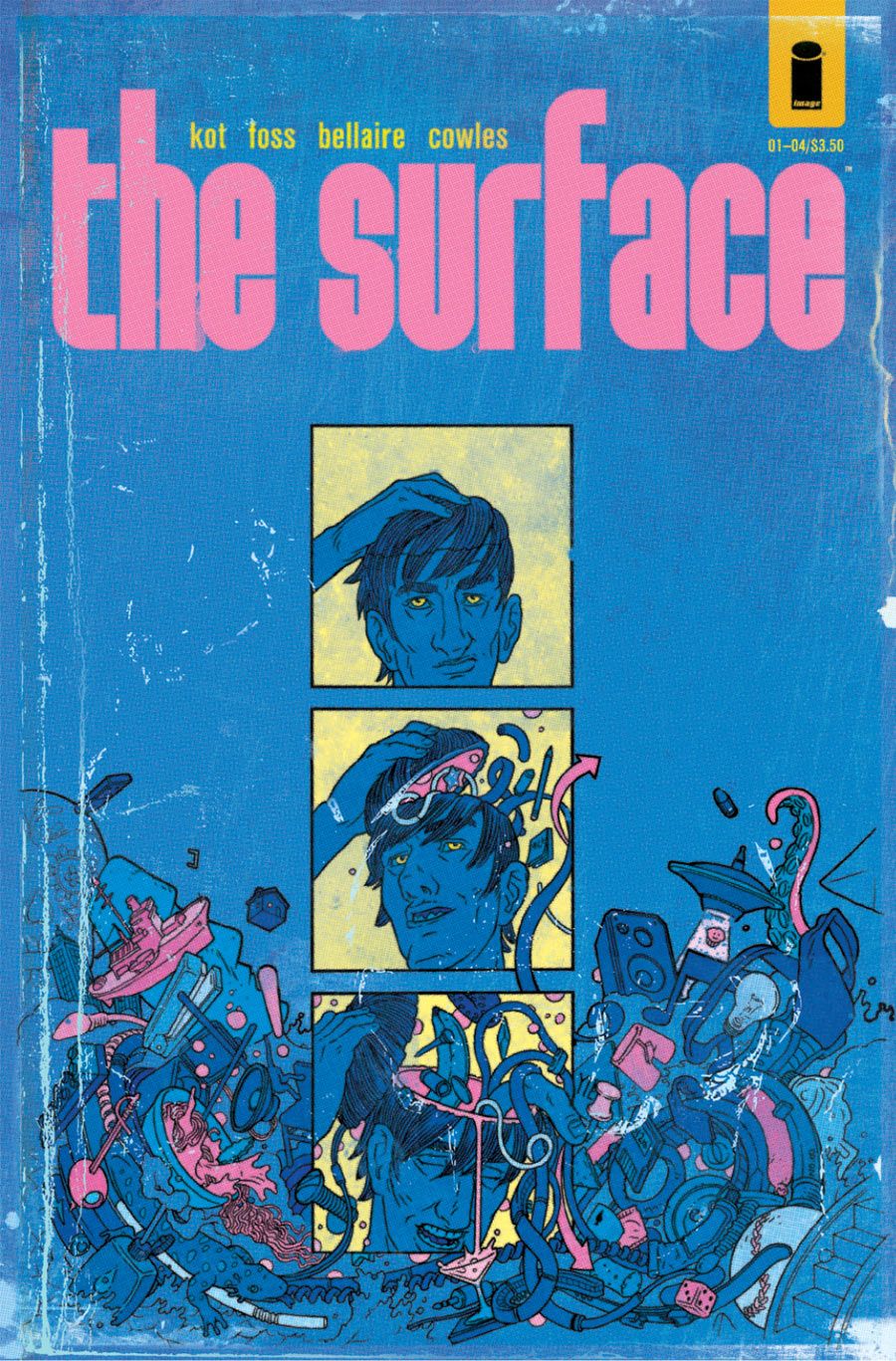In "The Surface" #1, polyamorous hackers hunt for the hologram at the heart of universe -- and the story's exactly as brainy, bizarre and totally-not-for-everyone as that premise would suggest. I had a brilliant time reading this directionless book, but I won't be surprised if it struggles to find a sizeable audience over its run. Ales Kot's hyperactive script is light on plot and packed with ideas, while Langdon Foss's panels capture both the cramped and cinematic elements of futuristic Dar Es Salaam. Jordie Bellaire's colors and Clayton Cowles' lettering bring this weird, wordy story to life and, altogether, "The Surface" #1 is a wonderfully fresh first issue.
I rarely start a review with the lettering, but Clayton Cowles and designer Tom Muller seriously outdo themselves here. Ales Kot's script is a many-headed hydra that asks a lot of the reader and the layout. By the sixth page, the reader is meant to follow three simultaneous streams of dialogue: the narrative caption, a president's televised speech and the protagonists' (yes, plural) commentary on said speech. This interspersing continues throughout the following pages, and laying all that text out in a way that's intelligible -- much less enjoyable -- requires a fine balance and a fine eye. I couldn't quite believe Cowles pulled it off.
Having acknowledged that the lettering makes this all possible, Kot's script is a remarkable, inexhaustible maze. In addition to the on-panel action, "The Surface" is stacked with propaganda, interviews and webpages from its world. From headlines like "foodie culture embraces global warming" to advertisements for the end of privacy, this vision for the future is slyly and smartly amplified from the present. Kot throws quite a few thoughts at the wall and, even if they aren't all particularly clever, they create a credible, chaotic universe to explore in aggregate. I love to see how he plays with the dangers and possibilities of globalization, corporatization and the ever-more-invasive surveillance state. However, it has to be said that this is a book set in Tanzania without any black protagonists. (I say this with the caveat that no one's heritage has been explicitly defined, so I could be wrong.) The 'ex-pats in Africa' premise becomes a bit more uncomfortably colonialist that way, though perhaps that's all part of the satire.
Though "The Surface" teems with ideas, it is rather light on plot and direction. Luckily, Foss creates a busy world that's a joy to hang out in, even if that's all the reader is doing for now. He creates a real sense of the grubby glory that is a modern city, diving from a cinematic look at the Dar Es Salaam skyline to the cramped apartment that Mark, Gomez and Nasia share. This is a huge place crammed with tiny details, and it feels fittingly cluttered and a little claustrophobic even as it's impressive.
To no one's surprise, Jordie Bellaire's color scheme is an absorbing joy. She plays with psychedelic blues and pinks in the beginning, summoning up digital artificiality and blue screens, before diving in a totally tan cityscape. It's a clever approach to the book's premise: if everything really is a hologram, it definitely doesn't look that way until the script peers under the surface.
"The Surface" #1 goes all in, so there will certainly be readers who hate what it's doing. As much fun as I had puzzling it out, if it doesn't sound like your type of book, you're likely quite right. However, if you're in the market for a trippy hacker odyssey, you're going to love "The Surface."

